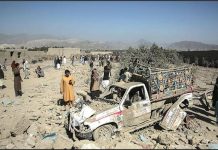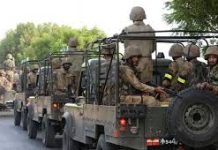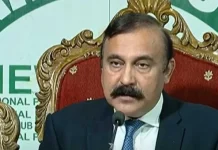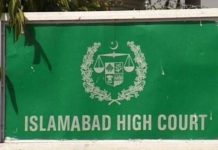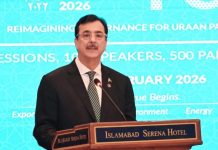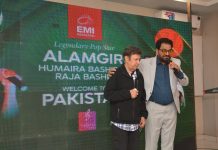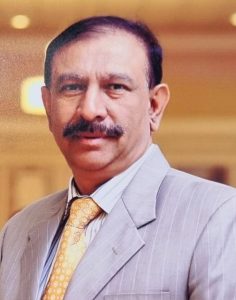
Brig Syed Karrar Hussain Retired
Introduction
Every nation has moments that define its collective spirit — moments when courage, sacrifice, and unity converge to forge identity. For Russia, November 4th — Russian Unity Day (День народного единства) — represents such a moment. It is more than a national holiday; it is a reminder of how unity and patriotism can overcome even the darkest chapters of history. In a rapidly changing world, this day stands as a timeless symbol of resilience and national pride.
Background and Historical Roots
Russian Unity Day traces its origins back to the early 17th century, a period known in Russian history as the “Time of Troubles” (Смутное время). After the death of Tsar Ivan the Terrible and his heir, Russia plunged into chaos. Foreign intervention, famine, and political instability threatened to tear the nation apart.
In 1612, the Polish-Lithuanian forces occupied Moscow, and Russia seemed on the verge of disintegration. But it was at this lowest point that the power of unity emerged. A merchant from Nizhny Novgorod, Kuzma Minin, and a military leader, Prince Dmitry Pozharsky, rallied ordinary citizens, peasants, and soldiers to form a people’s militia. Together, they liberated Moscow from foreign control — not as a royal army, but as united citizens defending their homeland.
This victory was not only military but moral. It restored Russian sovereignty, paved the way for the Romanov dynasty, and solidified the concept of national identity beyond royal or noble lines. It was a triumph of the people — a moment when Russians stood together, regardless of class or creed, to save their nation.
Evolution of the Holiday
Originally, the liberation was celebrated as a religious event — the Feast of Our Lady of Kazan, honoring the icon believed to have protected Russia. Later, during the Tsarist period, it evolved into a patriotic celebration.
However, after the 1917 Bolshevik Revolution, the Soviet government replaced it with November 7th — the anniversary of the October Revolution, focusing on socialist ideals rather than religious or national unity.
In 2005, President Vladimir Putin reinstated November 4th as Russian Unity Day, officially replacing the Soviet-era holiday. The revival of this day symbolized a return to traditional values — patriotism, faith, and social cohesion. It reminded citizens that Russia’s strength has always come from the unity of its people rather than ideological divisions.
Meaning and Importance Today
In modern Russia, Unity Day serves as both a historical remembrance and a call to solidarity. It unites a diverse nation that spans eleven time zones, hundreds of ethnic groups, and multiple faiths.
Official ceremonies take place in Moscow’s Red Square, where national leaders lay flowers at the Minin and Pozharsky monument — the same heroes who liberated Moscow centuries ago. Across the country, parades, cultural festivals, and concerts celebrate the richness of Russian heritage.
But beyond celebration lies reflection. The day encourages Russians to think about what holds them together — common language, shared history, and collective responsibility. In an age of political polarization and global uncertainty, Unity Day is a reminder that national cohesion remains the foundation of progress and peace.
Russia’s Importance in International Politics
Russia’s influence on the global stage is both historic and contemporary. From the days of the Russian Empire to the Soviet Union and now the Russian Federation, the country has been central to global power balance, diplomacy, and security.
1. A Strategic Power
Geographically, Russia is the world’s largest country — bridging Europe and Asia. It holds immense natural resources, particularly oil and gas, making it a major player in the world energy market. Its position enables it to shape economic and political developments from Eastern Europe to Central Asia.
2. Permanent Member of the UN Security Council
Russia’s seat as a permanent member of the United Nations Security Council gives it the ability to influence international decisions on peacekeeping, conflict resolution, and sanctions. This power underscores its continued relevance in shaping global policy.
3. Military and Defense Capabilities
Russia possesses one of the world’s most formidable militaries, with nuclear capability and advanced defense technology. Despite facing economic sanctions and diplomatic challenges, it continues to project power through alliances, military operations, and defense exports.
4. Global Diplomacy and Regional Influence
Russia maintains deep ties with nations in Asia, the Middle East, and Africa, often acting as a counterbalance to Western influence. Its involvement in Syria, Iran, and Central Asian security initiatives shows that Russia remains a central player in shaping regional outcomes.
5. Cultural and Scientific Contribution
Beyond politics and power, Russia’s contribution to science, literature, art, and space exploration is globally recognized. From Tolstoy and Dostoevsky to Tchaikovsky and Gagarin, Russian culture remains an ambassador of intellect, creativity, and endurance.
In summary, Russia’s global importance lies not only in its might but in its multidimensional influence — a nation that continues to challenge, engage, and inspire the world.
Unity and Russia’s Modern Challenges
The 21st century has brought new challenges for Russia — economic sanctions, demographic shifts, digital transformation, and international isolation in certain arenas. Yet, the idea of national unity remains the strongest weapon in the Russian identity.
Unity Day resonates even more deeply now because it reminds Russians that survival and progress depend on internal strength — on the cooperation between government, society, and the younger generation.
This holiday is not merely a symbol of the past; it is a compass for the future.
Future of Russian Youth — The Torchbearers of Tomorrow
If the story of Minin and Pozharsky was about the courage of ordinary people, then the story of modern Russia will be about the creativity and resilience of its youth.
The Russian youth of the 21st century stand at a crossroads — between tradition and technology, between patriotism and globalization. They are more connected, educated, and aware than any generation before them. Yet, they also face challenges: economic uncertainty, political polarization, and the pressure to maintain identity in an interconnected world.
1. Education and Innovation
Russia continues to invest heavily in education, particularly in STEM (Science, Technology, Engineering, Mathematics) and space sciences. Institutions like Moscow State University and Bauman Technical University remain world-renowned. Russian youth are increasingly entering the fields of AI, cybersecurity, and space technology, making Russia a competitive force in the global innovation race.
2. Patriotism and Social Responsibility
Despite modernization, young Russians remain proud of their heritage. State programs encourage youth involvement in community service, volunteerism, and cultural preservation. The spirit of unity celebrated on November 4th finds modern expression through social media campaigns, youth parliaments, and student organizations that emphasize social harmony and respect for the nation’s diversity.
3. Global Integration
Russian youth today are not isolated. Through online learning, international collaboration, and cultural exchange, they contribute to global dialogues on climate change, digital ethics, and peacebuilding. They represent a new Russia — confident, intellectual, and cooperative — one that seeks recognition not through confrontation but through contribution.
4. Challenges Ahead
However, the path forward is not without hurdles.
Brain drain, unemployment, and restrictions on freedom of expression are genuine concerns. Yet, these challenges can also be catalysts for reform. The unity that once liberated Moscow can again inspire this generation to reclaim initiative and build a stronger, more just society.
Unity Day as a Message to the Youth
For the young people of Russia, Unity Day is not just a commemoration of 1612 — it is a lesson in self-belief and collective purpose. It teaches that nations thrive not merely through wealth or power but through shared responsibility.
Just as the citizens of Nizhny Novgorod once stood up for their country, modern youth must now stand for truth, justice, and progress.
Unity today means bridging divides — between rural and urban, tradition and modernity, authority and freedom.
It means realizing that the strength of Russia lies not in its size but in the unity of its people.
Conclusion
Russian Unity Day is both a celebration and a reminder — that the power of a nation lies in the hearts of its people. From the fields of Nizhny Novgorod to the corridors of the Kremlin, the lesson remains unchanged: when Russians stand together, they are invincible.
In a complex and often divided world, Russia’s message on this day resounds with timeless clarity:
Unity is strength. History is memory. And the future belongs to those who believe in it.

